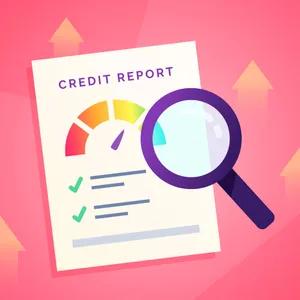Moving from a high-tax state (like California or New York) to a state with no individual income tax (like Texas, Florida, or Nevada) can lead to big tax savings. Making the move stick is often harder than simply changing your address. High-tax states watch closely to confirm you've truly left, often running "exit audits" to protect their tax dollars.
Understanding and proving your change of domicile—your true, permanent home—is the most important part of this process.
The Core Challenge—Proving Your Domicile
Your domicile is the place you consider your true home. It's where you intend to live permanently and return to after any trip. High-tax states will tax your income until you prove your domicile has permanently moved somewhere else.
The "Day Count" Rule
Most states start with a simple day-count test to check your residency status.
- The 183-Day Rule: If you spend 183 days or more (six months plus one day) in the old, high-tax state during the tax year, that state can usually claim you as a resident and make you pay income tax.
- Action: If you move mid-year, track every day carefully. Spending 183 days in the old state means you may owe tax there for the entire year.
The Domicile Test (The Tiebreakers)
To prove you've fully cut ties with your old state, tax authorities look for clear evidence of a permanent move. These are the main points they check:
| Factor | Old State (Must Cut) | New State (Must Start) |
| Home/Property | Sell your primary residence or rent it out long-term to unrelated people. | Buy a new home or sign a long-term lease. |
| Driver's License | Surrender your old driver's license and car registration. | Get a new driver's license and register your car there. |
| Voter Registration | Cancel your old voter registration. | Register to vote in the new state. File a Declaration of Domicile (if the new state allows it, like Florida). |
| Financial/Legal | Change the address on all banking, investment, and credit card accounts. | Open new accounts at local banks. Set up local professional relationships (doctor, dentist). |
| Intangible Ties | Close memberships to local gyms or social clubs in the old state. | Move family valuables, art, and heirlooms to the new state. |
Tax Outcomes for Different Income Types
Even after you change your domicile, some kinds of income might still be taxed by your old state.
1. W-2 Income (Employee)
If you are a remote worker, your income tax is usually based on your domicile.
- Remote Work: If you move from New York to Florida and keep working remotely for the same New York company, your income is taxed by Florida (at 0%).
- Physical Presence: If you travel back to the old state for work (even a few days), the income earned during those specific days may be taxable by the old state.
2. Business Income (Pass-Through)
Income from a pass-through business (like an S-Corp or partnership) is taxed based on where the owner lives.
- Action: If your business is registered in the high-tax state, you must file a final return there, even if the income goes to your new zero-tax state. You might need to formally dissolve or re-register the business in the new state.
3. Investment Income (Capital Gains)
Taxes on capital gains and interest are typically based on the taxpayer's state of domicile. Once you are settled in the new state, you no longer owe state tax on investment profits, no matter where your brokerage account is located.
The Cost of Complacency
Moving to a state with no income tax can save huge amounts of money each year. You lose that benefit, however, if you don't execute the move perfectly. High-tax states hire auditors just to challenge claims of moving. Your best plan is to create a clean, documented break from your old state by meeting the "Day Count" rule and gathering overwhelming proof of your new domicile.






